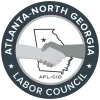Housing (Evictions, Foreclosures, Mortgages)
Evictions. Some courts have stopped hearing eviction cases during the crisis. If you have been served with an eviction notice, contact the local court to see what their policy is at this time.
The new CARES Act passed by the federal government stops some landlords from filing evictions for the next 120 days (through July 25, 2020). This does not apply to eviction cases that were filed before March 27th.
Landlords covered under this law:
Cannot file for eviction if you do not pay your rent during this time and
Cannot charge you any fees for not paying your rent.
But, you can still be evicted if you break your lease in another way.
Your landlord cannot file for eviction if:
You live in subsidized housing. This applies to federal housing programs, including:
Public housing
Section 8 Housing Choice Voucher program
Section 8 project-based housing
Section 202 housing for the elderly
Section 811 housing for people with disabilities
Section 236 multifamily rental housing
Section 221(d)(3) Below Market Interest Rate (BMIR) housing
HOME
Housing Opportunities for Persons with AIDS (HOPWA)
McKinney-Vento Act homelessness programs (42 U.S.C. § 11360, et seq.)
Section 515 Rural Rental Housing
Sections 514 and 516 Farm Labor Housing
Section 533 Housing Preservation Grants
Section 538 multifamily rental housing
Low-Income Housing Tax Credit (LIHTC)
You also cannot be evicted for not paying your rent if your landlord has a federally backed mortgage. It may be hard to know if your landlord has this type of loan.
If your landlord does file an eviction case during this time, say in your answer that you believe your landlord has a federally backed mortgage, and ask the court to make them prove that they do not have a federally-backed mortgage.
If you are served with an eviction, contact a lawyer right away, especially if you believe that you are protected by this new law.
NoRent.org has a free tool to help tenants who cannot pay rent because of COVID-19 write a letter to their landlord.
Mortgage and Foreclosure Help. If you are having trouble paying your mortgage read this guide from the Consumer Financial Protection Bureau to learn about your options.
What if I can't pay my mortgage?
Congress passed a law requiring that borrowers with federally-backed mortgages be given a forbearance for up to six months if they fell behind due to a Coronavirus-related hardship. And it’s possible to get the forbearance extended for another six months.
Federally-backed mortgages are ones owned or insured by Fannie Mae, Freddie Mac, or the FHA, VA, or USDA.
How do I find out if my mortgage is federally-backed?
Fannie and Freddie own about half of the U.S. mortgage loans, and most people have no idea their mortgage is owned by Fannie or Freddie. Homeowners can check whether their loan is backed by Fannie Mae or Freddie Mac by using the agencies’ loan look up tools and can confirm whether their loan is FHA-insured by reviewing their loan documents and mortgage statements.
What does a forbearance mean?
A forbearance means the servicer will allow you to send no payment, or a reduced payment, for a period of time. At the end of the forbearance period, you owe those skipped payments, but your servicer can agree to modify your loan or put the missed payments at the end of the loan. It’s important to contact your servicer before the forbearance is over to apply for help if you will not be able to pay the skipped payments all at once.
How do I get a forbearance?
You have to contact your mortgage servicer (the company that takes your payments normally) to ask for a forbearance. Some companies have long wait times on the phone. Try the servicer’s website to see if you can ask for a forbearance online. You may be asked to submit a hardship letter.
What if my loan is not federally-backed?
Many mortgage companies are offering forbearance plans for all of their loans. Contact your servicer to ask for a forbearance if you need one. Remember to reach back out before the forbearance is over if you’re going to need a loan modification.
Are foreclosure sales happening in Georgia right now?
If you have a federally-backed mortgage, those foreclosures have been stopped for 60 days (through May 17th) unless the property is vacant or abandoned.
If your mortgage is not federally-backed, Georgia has not entered a statewide order blocking foreclosure sales. However, it’s possible your lender may have decided to cancel the sale, possibly due to a local stay-at-home order. The only way to be sure whether a sale is happening is to call the law firm that sent you the foreclosure letter and ask. If they tell you the sale has been canceled, ask them to confirm by fax or email. If they refuse to send it in writing, you can send a fax or email yourself confirming the cancellation in writing.
Foreclosures in Georgia are the first Tuesday of every month, so after April 7, the next possible sale date is May 5.
If my home has been foreclosed, do I have to move out?
After a foreclosure sale, the person that buys the home in the auction must file an eviction in the county in which you live. If you get served with an eviction lawsuit, you may have an extension of time to file an answer if your county court has entered an emergency order. Call or check the court’s website. However, if you wait to file an answer, you must file your answer as soon as the emergency order is lifted. If you file an answer now, a hearing will not be scheduled until the emergency order is lifted. Once your hearing is scheduled, you should attend the hearing. When that hearing happens, the judge will likely give you only seven days after the hearing in which to move.
